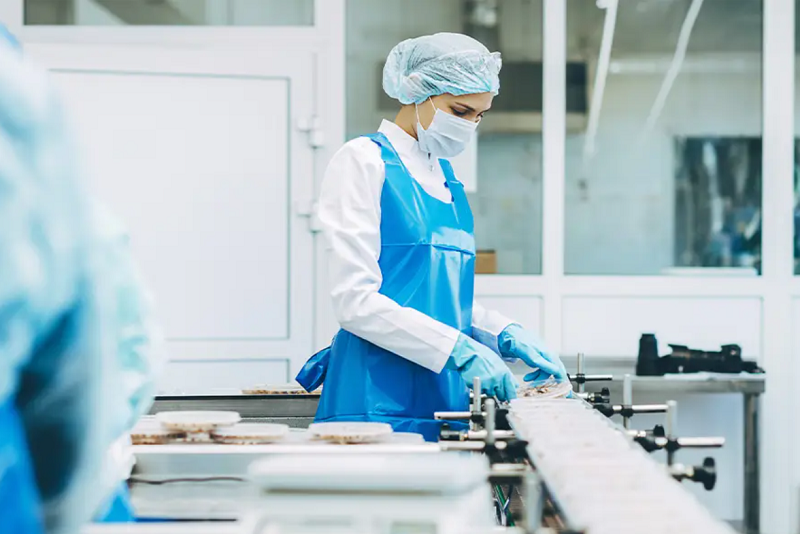The food manufacturing industry is highly profitable but very competitive. To thrive, business owners and employees should adhere to strict hygiene standards.
Every step of the food manufacturing process must meet strict cleanliness standards, from when raw materials enter the manufacturing company to the time finished products reach the consumer. This article will discuss critical strategies companies venturing into the food industry should implement to master hygiene throughout the production chain.
Automated Cleaning
Machines that process and package food products must be cleaned regularly and thoroughly. However, manual cleaning can slow down production and increase labor costs. That is where automated machines come into play. The leading food manufacturers use CIP equipment for sanitation, which allows automated cleaning of sensitive parts and surfaces used during food manufacturing or processing.
Automation creates consistent and repeatable cleaning cycles. With this equipment, employees do not need to disassemble the machinery for cleaning projects, which reduces downtime and the possibility of human error.
Employee Training
Employees working in the food manufacturing industry should undergo comprehensive training on proper hygiene protocols. The training program should cover all the basics, such as handwashing, protective clothing, and contamination prevention.
These simple practices can boost overall food safety. Companies can enforce training by conducting regular audits and refresher courses, which will help employees understand the importance of these practices in everyday operations.
Clear Designation Zones
Food manufacturing companies should choose an appropriate facility layout and workflow system that helps separate raw materials from finished products. This measure might seem insignificant, but it is critical in minimizing product cross-contamination or the possibility of pathogen transfers. With the appropriate workplace designs, food manufacturers can effectively reinforce hygiene controls and improve efficiency.
Effective Cleaning
Besides cleaning the machines that process the food, food companies should have a scheduled washdown and sanitation procedure to help maintain a clean factory and equipment. They also need a pest control program, including traps, seals, and regular monitoring.
Pests and rodents can cause a severe food-borne disease outbreak. The disease can spread fast because it is distributed through the food distribution channels, worsening the problem. However, an effective cleaning and pest control strategy creates a safe environment for food handling.
Ingredient and Water Safety
Regardless of how much effort a food manufacturer or company puts into ensuring the equipment is sanitized, the risk of contamination is high if the water used does not meet the required safety standard. That is why food companies should regularly test their water for microbial contaminants. These tests will help prevent unsafe elements or microorganisms from contaminating food products.
Environmental Monitoring
Food manufacturing industries should monitor the air, water, or surface for microbial contamination, which could negatively impact the company’s reputation and, in some cases, lead to closure. Food business owners should consider internal and external factors influencing hygiene during food production.
Scheduled environmental audits allow for early intervention and timely corrective measures after identifying food safety hazards. Experts in food safety use strategic sampling and data tracking to monitor trends and recommend better sanitation protocols.
Food manufacturers must maintain high food hygiene standards to thrive in the industry. Overlooking hygiene could lead to food contamination, which could cause health challenges, legal issues, negative reviews, and business failure. Therefore, food manufacturers should invest in appropriate equipment and systems to maintain hygiene and safeguard consumer health.







